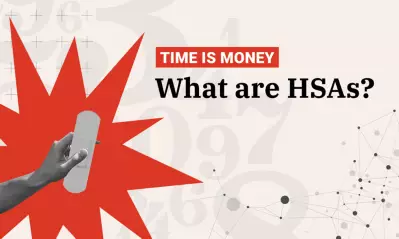Stop hating on millennials: 5 ways they’ve improved the workplace for everyone

Written by Claire O'Brien

Reviewed by Christina Neider, EdD, Associate Provost of Colleges

According to media headlines, the millennial generation is responsible for ruining just about everything — from travel to the housing market to even breakfast cereals. Stereotyped as indulgent, lazy and obsessed with social media and technology, those born between 1981 and 1996 are credited with disrupting industries with their consumer spending habits. But millennials are also shaping industries from within organizations as both employees and managers. Understanding their impact from within the workplace has become increasingly critical as millennials have overtaken boomers as the largest percentage of the workforce.
A study about managerial insights on millennials in the workplace, published in November 2022 by the Center for Organizational Wellness, Engagement and Belonging at University of Phoenix (UOPX), asserts that acknowledging the positive cultural changes this generation has brought is essential for managers leading a multigenerational workplace.

“It is time to start thinking about millennials differently because they are the largest group in the workforce and the current influencers. [Millennials] must be recognized, groomed and prepared for the future and moving organizations forward,” explains Dr. Sandra Sessoms-Penny, a senior research fellow at the Center for Organizational Wellness, Engagement and Belonging and a co-author of the study.
Let’s look at five ways millennials have effected positive cultural changes in the workplace.
1. Millennials modernize work processes by challenging the status quo
Over three-fourths of managers in the study noted the importance of millennials as a catalyst for organizational change.
One study participant explained, “Often millennials bring different perspectives and fresh, efficient ways of doing things. This helps the organization, as older workers may not have thought of certain solutions because they have been doing things for so long, the same way. Innovative ideas create the changes we need to survive as a company.”
Of course, some industries embrace innovation more than others. Sessoms-Penny elaborates, “Industries that have been more welcoming to millennials in the workplace are technology, logistics and government businesses. They support change, especially as it benefits them and others.”
2. Millennials demand flexibility from their employers
Once upon a time, working from home was a workplace perk enjoyed by an exclusive few. Now it’s almost a given — and if you like taking Zoom calls in your pajamas, you have millennials to thank.
Another manager participant in the study related expressing his surprise during an interview where a millennial applicant vocalized that the ability to work from home on certain days was non-negotiable — a statement that once would have been an immediate deal breaker.
Today’s applicants expect that the hiring organization will be willing to negotiate on the terms of work, such as flexible working hours and locations, thus opening opportunities for more diverse applicants such as those balancing careers and other obligations, like caregiving or school.
3. Millennials push technology into the workplace

During the pandemic, this tech-obsessed generation brought even the dustiest workplaces out of the Dark Ages and online.
“When it came time to suddenly pivot to working from home, millennials were able to integrate the use of social media and Zoom more naturally since many were already comfortable with these platforms,” explains Dr. Joy Taylor, a senior research fellow at the Center for Workplace Diversity and Inclusion Research and a co-author of the study.
While technology opened the door for millennials to update their workplace internet and social media policies, it’s through revising these systems and platforms that millennials can propel their organizations forward and enhance their competitiveness.
Another plus: Older and less tech-savvy workers can increase their technology proficiency through exposure to the technology and training from their younger colleagues. Need proof? Three years into the pandemic, it seems like just about everyone can finally operate their laptop camera for the daily Zoom meeting.
4. Millennials insist on employers prioritizing diversity initiatives
According to Glassdoor’s 2020 Diversity Hiring survey, 76% of job seekers and employees believe a diverse workforce is essential when evaluating a workplace. That's no surprise since millennials constitute the largest segment of today’s workforce and are among the most racially and ethnically diverse generations in U.S. history.
But why is diversity so important to millennials in the workplace? According to Gallup, millennials differentiate themselves from other generations through three unique traits:
- They’re connected: They are more aware of a wide range of perspectives, cultures and lifestyles.
- They’re unrestrained: They are more comfortable having uncomfortable conversations.
- They’re idealistic: They envision a workplace in which every voice is valued and heard.
5. Millennials demand meaning in their work beyond a paycheck
Millennials have been criticized for being less engaged with their work and perennial job hoppers. According to Gallup, 21% of millennials report changing jobs within the last year, more than three times the number of non-millennials.
But that’s because millennials want more than just a paycheck. They want purpose.

“If they’re unhappy, they’re very comfortable leaving and finding their own place in this workforce. They are challenging that trajectory of going from high school to college, to the workplace to retirement, to wherever we go after retirement. They’re making their own path regarding the way work is done in our workforce. And that’s exciting,” explains Kimberly M. Underwood, PhD, university research chair of the Center for Organizational Wellness, Engagement and Belonging and a co-author of the study.
But what makes work meaningful to a millennial? According to Gallup, millennials crave development in their roles over job satisfaction. While a reliable but dead-end job might have been enough for other generations, millennials value workplaces that care about their well-being.
The future of millennials in the workplace
While millennials have edged out boomers both as the largest percentage of the workforce and the media’s favorite scapegoat, the contributions millennials have made to workplace culture are undeniable. Keeping them engaged in their work is a unique challenge for managers of millennials, but a skill worth developing to retain this talented workforce.
In increasing numbers, millennials are moving into management roles, further influencing the culture of America’s workplaces. The Center for Organizational Wellness, Engagement and Belonging is planning future research on how these former millennial employees operate as managers.
For example, Taylor asks, “Do they fall in line and maintain the status quo, or are they change agents who understand the importance of making every employee feel included and appreciated?”
Sessoms-Penny adds: “We need to understand millennials as managers and change agents. They have the opportunity to influence others and prepare the next generation of workers for the workforce.”
Based on the research, that’s probably a good thing.
Read more articles like this:
ABOUT THE AUTHOR
Claire O’Brien has led copywriting teams for Hilton Worldwide Corporate’s creative studio and advertising agencies specializing in the real estate, hospitality, education and travel industries. In 2020, she founded More Better Words, a boutique copywriting agency that taps into her global connections. She lives in Costa Rica with her husband and six rescue dogs.

ABOUT THE REVIEWER
Jessica Roper, University of Phoenix director of Career Services, is a seasoned leader with over 15 years of experience in leadership within higher education. She has honed her expertise in student services and career development and is passionate about helping others discover and refine their skills.
This article has been vetted by University of Phoenix's editorial advisory committee.
Read more about our editorial process.



